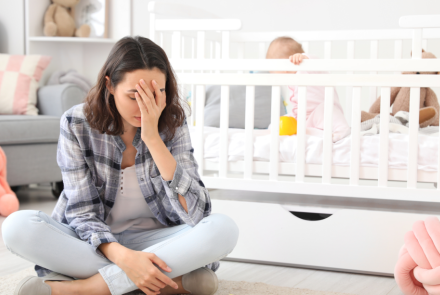Women of all ages should have an annual wellness exam with their gynecologist, even in years they are not scheduled for cervical cancer screening with a Pap test or HPV test, says Maria Emerson, M.D., the Director of Obstetrics and Gynecology at Montefiore Nyack Hospital and a gynecologist with OBS-GYN of Rockland in New City and Stony Point.
“Cervical cancer screening guidelines have evolved over the years, and annual screening is no longer routinely recommended,” said Dr. Emerson. “But even in the years in between your cervical cancer screenings, there are many important reasons to see your gynecologist, including birth control counseling, preconception care, health screenings and the latest information about your reproductive health.”
Teen Health Visits
Teen girls should first see a gynecologist between the ages of 13 to 15. “During the teen years, visits may not necessarily involve a physical exam,” Dr. Emerson said. “The doctor will talk about changes the teen is going through, and discuss things such as hormonal changes, any difficulties with their menstrual cycle, or concerns about sexuality. If a teen is sexually active, the doctor will talk about birth control.”
Cervical Cancer Screening
Starting at age 21, screening for cervical cancer begins. In order to test for cervical cancer, your ob-gyn takes cells from the cervix and sends them to a lab for testing. You may have a Pap test, an HPV test, or both. A Pap test looks for abnormal cells. An HPV test looks for infection with the human papillomavirus (HPV) types that are linked to cervical cancer.
ACOG recommends these guidelines for cervical cancer screening:
- If you are younger than 21 years—You do not need screening.
- If you are aged 21–29 years— Have a Pap test every 3 years.
- If you are aged 30–65 years—You can choose one of three options:
- Have a Pap test and an HPV test (co-testing) every 5 years
- Have a Pap test alone every 3 years
- Have an HPV test alone every 5 years.
You still need to have screening if you have been vaccinated against HPV. And you still need to have screening if you have had a hysterectomy and your cervix was not removed.
If you are 65 years or older, you do not need screening if you have no history of cervical changes and either three negative Pap test results in a row or two negative Pap and HPV results in a row within the past 10 years, with the most recent test performed within the past 5 years.
Well Woman Exams
In the years in between cervical cancer screenings, your gynecologist will do a clinical breast exam and a pelvic exam to check your uterus and ovaries to look for changes. Your doctor will check your blood pressure, and ask questions to see if you should be screened for sexually transmitted infections. “We talk about common concerns for women. Have you had a mammogram recently? Are you having any problems with sex or birth control? Have your birth control needs changed since the previous year?” Dr. Emerson noted.
For women who are considering becoming pregnant, the gynecologist will provide guidance including changing unhealthy habits, adding folic acid to the diet to avoid birth defects, and stopping certain medications that could affect the pregnancy.
For women going through menopause, the gynecologist can address common issues that women face, such as hot flashes, vaginal dryness, painful intercourse and urinary changes.
When you go for your annual wellness visit, tell your gynecologist if:
- You’ve had changes in your menstrual cycle, such as if they are longer or heavier (heavier periods can be a sign of fibroids)
- Anything has changed that might affect your choice of birth control
- You’ve noticed changes in your sex drive
- You are experiencing bleeding or pain after sex
- You’ve noticed any changes in your breasts
- You have had any vaginal discharge, discomfort or pelvic pain
“Women tend to take care of everyone else, and put off their own health care needs,” Dr. Emerson said. “During the pandemic, this has been more true than ever. Seeing your gynecologist every year is an important part of taking care of yourself.”






